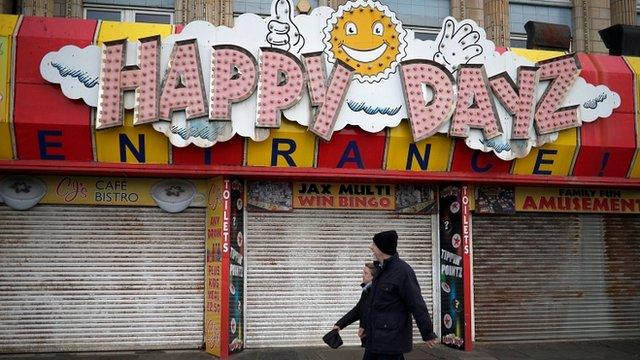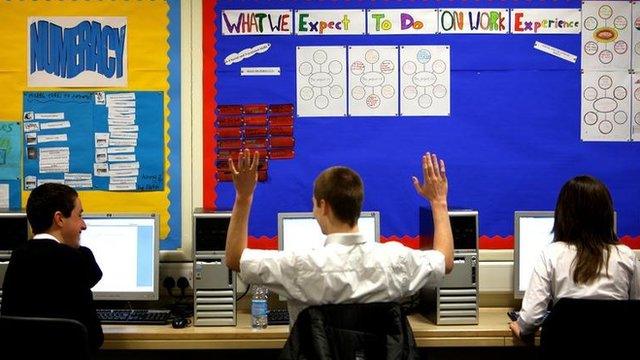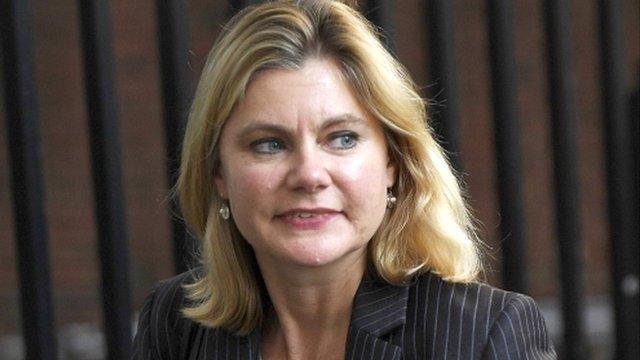Poorer pupils lag by almost two years
- Published
- comments

Blackpool is one of six areas targeted for extra help with social mobility
Poorer pupils in disadvantaged "opportunity areas", designated for extra help by the government, are lagging almost two years behind better off counterparts elsewhere in England.
A study for the Ambition School Leadership charity found deprived youngsters in these six areas were 20.1 months behind at GCSE level.
Schools minister Nick Gibb said it showed the importance of targeting support at areas that were "the most challenged when it comes to social mobility".
There have been six opportunity areas named by the government so far - Norwich, Blackpool, Derby, Oldham, Scarborough and West Somerset - with the promise of more to follow.
There will be £60m of extra spending to promote social mobility in these areas, such as linking schools to businesses, universities and careers advisers.
Falling behind
The study shows how far "persistently disadvantaged" pupils - who have been eligible for free school meals for four out of five years - have fallen behind in secondary school.
They were found to be the equivalent of 20.1 months behind the average for children who were not on free school meals in other parts of England.

The study found that poorer areas had slipped further behind better off regions
Pupils in the "opportunity areas" who were not on free school meals were also behind their counterparts in other parts of England - by 4.7 months.
The study looked at pupil achievement between 2010 and 2015 and found that the gap had widened.
Ambition School Leadership has been created from bringing together two education charities, Future Leaders Trust and Teaching Leaders, which had worked to improve school leadership, particularly in disadvantaged areas.
James Toop, chief executive of the new charity, said: "We know great leaders at all levels make great schools. We're going to be working even harder to reach these schools and give the children they serve a great education."
School Standards Minister Nick Gibb said the study showed the need for the government's plans to "make more good school places available, to more parents, in more parts of the country".
He said this would include "scrapping the ban on new grammar school places and harnessing the resources and expertise of universities, independent and faith schools".
"This report underlines the need to focus our efforts in the areas identified as the most challenged when it comes to social mobility."
A separate study from the the Education Policy Institute looked at Ofsted inspections in schools with a more disadvantaged intake.
The researchers claimed inspectors were more likely to have harsh judgments on schools with higher proportions of pupils on free school meals - and that they could be too generous to those with a wealthier intake.
An Ofsted spokeswoman rejected this claim, saying that inspectors would "mark down coasting schools in leafy suburbs where we see pupils not making as much progress as they should".
"Similarly, we do recognise schools in more deprived areas where children are making good progress."
- Published4 October 2016
